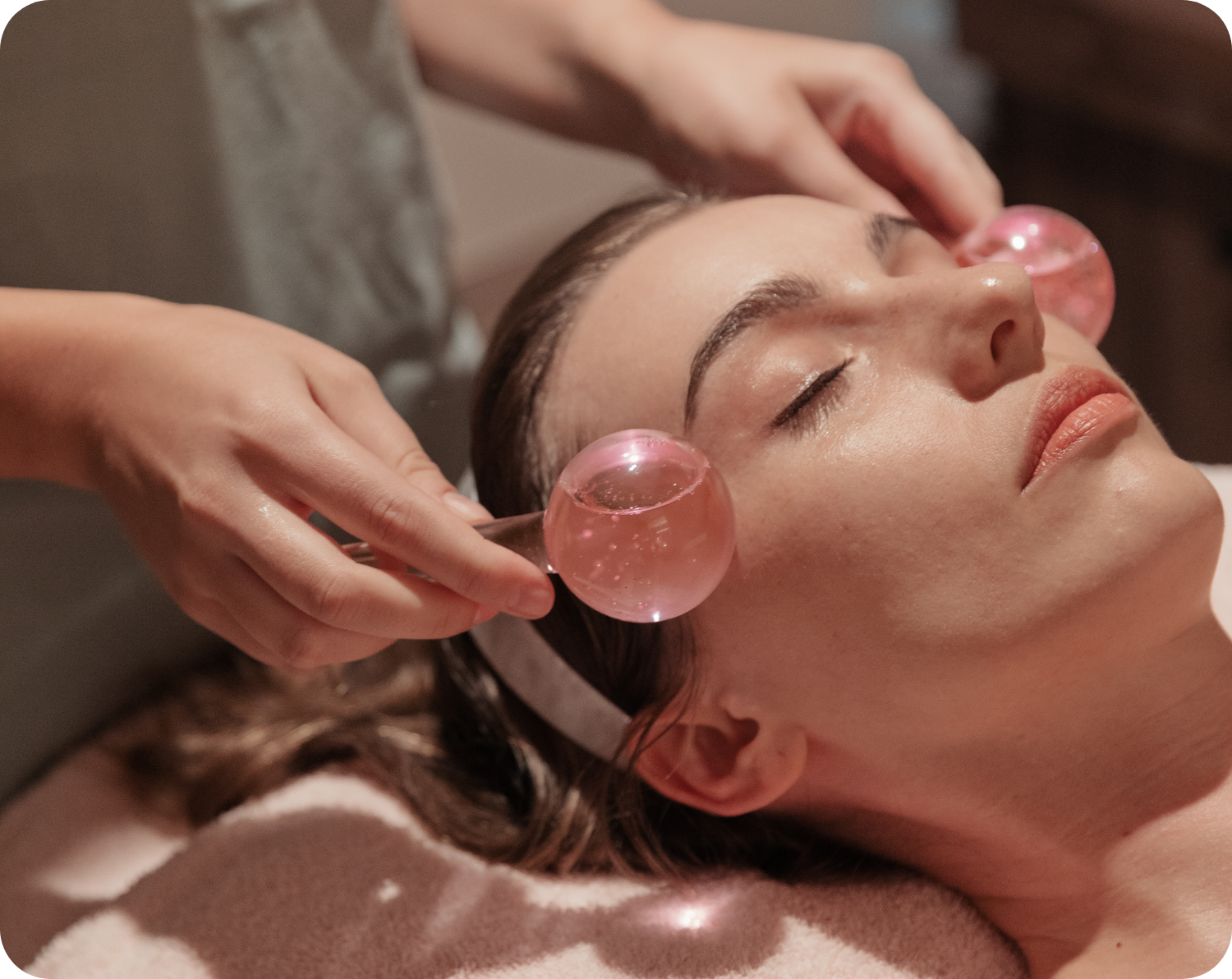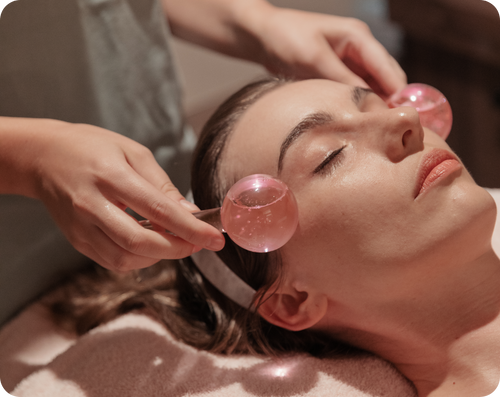

Pregnancy comes with lots of sacrifices: giving up your evening wine, cutting down on coffee and trading in your whole wardrobe, but did you know that it also requires some changes to your skincare regime?
It may come as a surprise to you, but it’s necessary to really look into your skincare products and identify any ingredients that could be potentially harmful to your unborn bub. This is because many ingredients can be absorbed into your body via your skin, making their way to your bub as he/she develops in utero.
Don’t be too alarmed, as most over-the-counter skincare products are quite safe for use during pregnancy. However, our helpful guide will help you breakdown all the dos and don’ts when dealing with the most common skincare concerns brought on by pregnancy.

Skin Changes During Pregnancy
Whilst some lucky ladies will breeze through nine months with that pregnancy glow, many women will find that they experience at least one new skincare concern. Such as dry skin, darkening skin or pigmentation (melasma) or acne, brought on by the fluctuating hormones. There’s also a slew of other beauty concerns that come with pregnancy including excess hair growth or hair loss, stretch marks and spider veins – thanks a lot baby!
Dry Skin
Between the baby sucking up all that moisture and your rapidly expanding dermis (skin), it’s highly likely you will experience tight, dry or flaky skin that may require some extra TLC. The easiest and most obvious way to combat this is to moisturise more frequently and ensure you stay hydrated from the inside by drinking adequate amounts of water throughout the day. Also, try to limit hot showers or baths – a quick, warm shower is much less likely to dry out your skin.
BLOC RECOMMENDS: Hydrate Your Skin Moisturiser
Melasma
Caused by a steep rise in estrogen and progesterone levels, which stimulates excess melanin production, melasma is especially common in darker-skinned women of Asian or African descent. The good news is that it usually disappears after childbirth, or in some cases, after breastfeeding. Melasma is worsened by sun exposure, so it’s important you take your sun safety seriously by using a 50+ zinc oxide sunscreen. If your pregnancy melasma makes you feel self-conscious, the good news is that it is easily covered up with a good concealer.
BLOC RECOMMENDS: Your Cover Zinc Stick
Stretch Marks
While there is no sure-fire way to prevent stretch marks, you can definitely minimise them by frequently moisturising prone areas with products containing ingredients such as coconut oil, cocoa butter and hyaluronic acid. You can also look for a lotion high in Vitamin E or use a paw paw ointment. For best results, massage your serum or lotion, into the affected areas 2-3 times daily. Consider this a little slice of me-time before and after your baby arrives.
BLOC RECOMMENDS: Boost Your Glow HA Serum
Ingredients to Avoid During Pregnancy
Some ingredients have been proven to be unsafe for use during pregnancy, so it’s important to check all your products and immediately discontinue use of any products that contain the following ingredients:
Retinoids
Vitamin A is an essential nutrient for optimal skin, immune, reproductive and eye health. Once you have consumed Vitamin A or absorbed it through your skin, your body converts it to retinol. Many anti-aging skincare products use retinoids or retinol for its effectiveness in treating fine lines, wrinkles, and other signs of aging. However, it is advised that all retinoids should be avoided during pregnancy as some studies have shown a strong link between retinoids and congenital defects.
Salicylic Acid
Commonly used to treat acne for its anti-inflammatory properties, high doses of salicylic acid (including peels and oral medications) have been deemed unsafe for pregnancy.
Hydroquinone
Prescribed to treat hyperpigmentation caused by melasma or chloasma, hydroquinone has not been linked to any serious congenital defects. However, it is easily absorbed by the body in significant amounts compared to other ingredients, it’s safest to completely avoid it during pregnancy.
Phthalates
Commonly used in a variety of skincare and personal care products, there are some concerns regarding the effect of phthalates on reproductive health. While studies are still being conducted to determine the effects on humans, animal studies have shown serious links to reproductive and hormone dysfunction.
Safe Alternatives
Don’t let the list of ingredients to avoid get you down, there are still plenty of safe and effective products you can use to address your pregnancy skin concerns, including:
Glycolic Acid
While large amounts of glycolic acid are not recommended during pregnancy, small amounts found in many over-the-counter products are perfectly safe. Glycolic acid can assist in reducing fine lines, brightening skin and reducing pigmentation.
Vitamin C
Topical vitamin C can safely protect your skin from free radical damage, and help maintain collagen for that youthful appearance.
Other antioxidants that you can safely use during pregnancy include vitamin E, vitamin K, vitamin B3 and green tea.
If you doubt any of the skincare products you use or would like to use, it’s always a great idea to discuss them with your GP or obstetrician.
BLOC RECOMMENDS: Boost Your C Serum

BLOC’s Ideal Pregnancy Skincare Regime
Step 1
Cleanse with Your Everyday Cleanse cream cleanser. Gentle enough for everyday use and great for sensitive skin, this fragrant cleanser combines jojoba oil and hyaluronic acid to nourish and hydrate the skin, and lemon extract to help replenish and revive even the most delicate skin types. It’s a must-have in any skincare routine (pregnant or not)!
Step 2
Apply a small amount of Boost Your B3 serum to clean skin. This powerful anti-inflammatory serum will help treat acne, reduce redness, boost keratin and reduce fine lines and wrinkles, while also targeting that pesky pregnancy hyperpigmentation! It’s suitable for all skin types, including very dry or sensitive skin, making it the perfect pregnancy all-rounder.
Step 3
Back up your serum with Hydrate Your Skin to lock in that moisture, leaving your face feeling ultra-hydrated. Ideal for all skin types, this lightweight moisturiser helps calm, soothe and protect your skin with antioxidants and collagen-stimulating ingredients.
Step 4
If you’re heading out and about, apply a 50+ zinc oxide sunscreen and then finish off with a layer of Your BB Cream to enhance that pregnancy glow. Its SPF 15 formulation means it will also protect your skin from the damage caused by day-to-day incidental sun exposure, while hydrating the skin at the same time. If your skin needs that little bit of extra coverage to get it looking its best, you can build up your coverage using our Your Cover zinc stick.
For more pregnancy-safe skincare products or cosmetics, view our full range of Australian designed and dermatologist approved products at www.blocskincare.com
